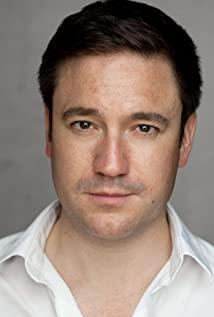(The analysis of this article is long, if you are too lazy to read it, you can go to the end of the article and watch the main narrative analysis of the third episode.)
First of all, I will show a general view of the third episode - this episode is actually about a special, mentally ill normal person The human story, or to be more specific, is that Tom's mental illness is triggered by underlying mental illness (repressed reality of not being able to pursue his dreams, deep depression after Gerri's death, etc.) and external shocks (death of beloved Gerri and irreparable guilt) The disease finally completes the story of self-redemption through extreme methods (killing Gerri). Gerri represents a mixture of Tom's subconscious mind and memory (schizophrenia), Migg represents Tom's psychological and spiritual sustenance (a symbiotic relationship of dependence), and both play roles in concrete forms to accomplish their mission.
Let's first explain the two technical terms of fine division and dependent symbiosis. Jingfen saw it while watching the bullet screen. The exact name of the disease is not given in the play, but from the dialogue between Stevie and Tom at the end of the play, "I'll go get you medicine", we can see that Tom is indeed sick, and colleagues know that, For the time being, it comes down to finesse.
The picture shows Baidu Encyclopedia, pay attention to the red underlined part, indicating that Tom is ill, but it does not affect his normal life (his spirit has been switching between normal rational thinking and subconscious thinking), and his condition will worsen with external stimuli ( The appearance of Migg has always made Tom's condition worse. Migg thought he could control Tom, but he didn't want to be attacked by Tom).
Besides, codependency is the relationship between Tom and Migg -
In the relationship between Tom and Migg, Tom is playing the role of "helper", but in fact he is the one who really needs help Man, the sense of incongruity and illogicality that I felt when watching the third episode was because of this. If Tom asked Migg to come into the house for a glass of wine at first out of good intentions, then Tom did not need to pour out his true thoughts to Migg, a homeless man, and he took the initiative to take up the topic and even found it later, revealing his feelings like As unguarded as an old friend. Tom's performance in the play is like looking for an outlet to communicate and express his emotions, and it is incredible for normal people to let Migg integrate into his life logically. There must be a deep psychological reason why Tom helped a homeless man he hated so much. The homeless writer Charles Bukowski is the sustenance in Tom's subconscious fantasy (which will be discussed later), and the appearance of Migg bears his psychological sustenance. (For readers who cannot understand this part, please refer to the author's other film review "Analysis of Episode 3 - An In-depth Interpretation of the Relationship between Tom and Migg")
The following is the formal analysis (there are many ambush and clues in the play, and only decisive ones are mentioned here. evidence):
1. Gerri is dead at the beginning of the film. Stevie's visit at the end of the show gives all the explanation:
①Stevie said "I know you've been through a difficult time" Tom said Gerri's name, Stevie looked embarrassed, but didn't speak, then Tom kept calling Gerri, Stevie looked surprised and said "Gerri died, do you remember? "It's been reflected here - Tom was so devastated by Gerri's death that he couldn't face the facts and escape the focus (difficult times). "We also said at the time that you were going back to work too soon" "I'll go get you medicine" - it means that Tom's colleagues all know that Tom is ill.
②"We also said that you went back to work too soon" This sentence is linked to the beginning of the film, Tom was working, and Tom never went back to work normally after letting Migg in the house that day (some people say that Gerri is the film He died on the first day, if this is the case, then Tom should wake up in the hospital instead of the next day wearing the same clothes as yesterday and wake up at home, thinking about something wrong at home), during which Stevie sent a message to care for Tom because of Gerri died and fell into a trough.
③About why Tom can return to work in a state of finesse. In the film, Tom has never taken medicine. It is guessed that he broke the medicine himself, because only the essence can see Gerri. Tom loves Gerri deeply, and Stevie also said, "I know you love him very much, but now it's time to let go." It can be said that Tom chose to make himself sick to maintain a normal life (so sometimes mental illness is also a form of self-defense).
2. From 1. It can be concluded that the whole play Gerri is a product of Tom's fine points. With this point of view, watching the third episode again will find many interesting clues. ①Tom may feel guilty about Gerri's death. Gerri appears for the third time and has an argument with Tom, and if Gerri is already dead, then the content of their argument is what really happened in the past. Gerri once asked Tom for help because he was unable to receive financial difficulties in the play, but Tom sarcastically ridiculed her (this is why Gerri subconsciously hates the term "homeless").
②Gerri's fourth dialogue with Tom reveals Tom's reality and psychological situation "You're not Charles Bukowski, don't run away, you just have a mental breakdown." This sentence may come from Tom's psychiatrist , However, Tom subconsciously grafted it onto Gerri, and because of this series of hints, Tom finally killed his cowardly fantasy to escape the sustenance - the tramp Charles Bukowski, who actually killed Migg. Tom has since overcome his cowardice, but he is still ill.
3. Migg came prepared, but he didn't guess the ending. Migg is a bum who has lived through the baptism of life, he should have been watching Tom for a while, knowing that Tom is not in the right spirit (Tom always yells Gerri into the air is too obvious) and plans to use his cunning wisdom to use his schizophrenia. Tom. (If you can't understand, please watch the third episode again. Migg planned to make Tom live like an island from buying alcohol to deleting messages and hiding his phone.) Migg planned to control Tom by his own means, but he didn't expect him Will eventually be killed by the mentally ill.
Let's talk about the development of the third episode:
Gerri and Tom are lovers, and there was a dispute. Gerri ran out of the house in a heartbroken manner, and later died in a car accident. Tom lost his beloved lover and felt extremely guilty, which led to the fine point (this is a guess, there is an analysis above, in short, Gerri died It is the direct cause of Tom's score, as for whether it is related to guilt, there is insufficient evidence). Colleagues knew Tom was mentally ill and took him to see a doctor. Tom later went off the drug himself, leaving Gerri's hallucinations with him and returning to normal work. During this period, Tom and Migg both looked at each other (oh, this seems a bit strange), Migg approached Tom out of his own calculations, and the main story began. Tom's normal psychological needs and inner pressure (mental breakdown) have been looking for an outlet because of his finesse. At this time, Migg arrived, and Tom accepted him logically. Later, what Migg did aggravated Tom's condition, made Tom's life take a turn for the worse, and destroyed the balance that had always been there. At this time, subconscious Gerri had to jump out to protect Tom, and then Tom killed Migg in order to restore his life to normal. The immediate reason why his life turned sour. (Actually, the root cause is the nostalgia for Gerri. It can be said that this nostalgia killed him and saved him. The human spirit is so magical.) Later, Tom's life returned to "normal" (there is a detail, when Tom was living a normal life) , that is, Gerri wears the same set of clothes at the beginning and end of the film, which may be a symbol of Tom's mental stability).
View more about Inside No. 9 reviews











